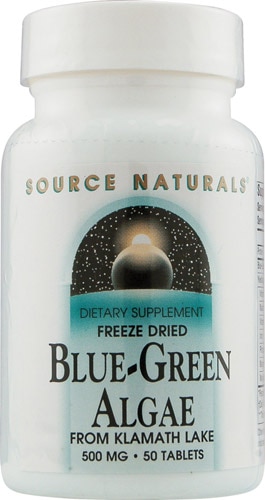It’s well-known that
omega-3 fatty acids play an important role in human health and overall wellness. The benefits of these healthy fats include supporting healthy brain, heart, immune and cardiovascular function, which is why supplements made from fatty fish and plants have become increasingly popular.
If you’ve searched for omega supplements before, you may have noticed the different types on the market. Fish oil and algae oil are among the most popular. They are both excellent sources of essential fatty acids and come with a handful of impressive benefits. So which one should you choose for yourself? That mostly depends on your dietary habits.
Fish oil vs. algae oil: Which is better?
Why compare fish oil and algae oil? They’re both sources of omega-3 fatty acids, which humans need to support a variety of bodily functions. There are several types of omega-3 essential fatty acids that are present in both fish oil and algae oil, including eicosapentaenoic acid (EPA), docosahexaenoic acid (DHA), eicosatetraenoic acid (ETA) and alpha-linolenic acid (ALA).
These fatty acids are found naturally in foods, including wild-caught fish, walnuts, chia seeds, flax seeds and egg yolks, but people tend to have a hard time getting enough in their diets. That’s why supplementing with fish oil and algae oil are popular and effective ways to feed your body these important nutrients, but they do differ slightly.
Fish oil comes from the tissues of oily fish, such as salmon, herring and mackerel. It’s high in DHA and EPA, and serves as a source of vitamin D. It’s one of the most readily available forms of omega-3 fatty acids and is often more affordable than other supplement options, making it a popular choice for people looking for an extra boost of omega-3s.
Algae oil comes from simple aquatic plants that contain phytochemicals like chlorophyll, amino acids, active enzymes, vitamins, minerals, and omega-3 fatty acids. Like fish oil, algae oil provides DHA and EPA, and it’s often used as a vegan alternative to fish oil. The DHA from algae has been found to be bio-equivalent to the DHA found in fish oil. It serves as an environmentally sustainable supplement option, only requiring salt water and sunlight for growth.
When comparing fish oil and algae oil, research suggests that their bioavailability and health benefits are about equal. For people on a vegan or vegetarian diet, algae oil serves as a great plant-based omega-3 option.
How to use omega svupplements
We know that it’s important to get enough omega-3s in your diet, and foods like wild-caught salmon,
mackerel, walnuts and
flax seeds are great sources of the healthy fats. But picking a good quality, effective supplement can be a little tricky if you don’t know what to look for. Consider the following factors when searching for the best omega supplement:
- Type. DHA and EPA are the most active forms of omega-3 fatty acids, so ensure that the product has a good mix of both. ALA is often found in plant-based omega-3 products, but it does have to be converted into DHA and EPA in the body, which isn’t always efficient.
- Dosage. The dosage or serving size of a supplement will impact its efficacy. Although there aren’t official guidelines on a daily omega-3 dose, starting with at least 250-500 milligrams of combined EPA and DHA daily is recommended.
- Purity. Look for omega-3 supplements that are certified by a third-party program, such as the International Fish Oil Standards, which will ensure that the manufacturer abides by strict standards of purity and doesn’t allow for the presence of contaminants, heavy metals and toxins.
- Quality. Choose a supplement that is unrefined and pure, made with minimal fillers or added ingredients. For the best absorption, select a product that contains triglycerides, phospholipids or free fatty acids.
How do you use omega-3 fatty acid supplements? The use and dosage will depend on the product, so read the label directions carefully. Generally, taking 250-500 milligrams per day is a good starting point. Soft gel capsules are a popular form of omegas and the dosage can be monitored easily.
Ancient Nutrition’s Omegas Whole Body supplement is made with a special combination of organic plant and wild ocean omega fatty acids. A serving provides 1,000 milligrams of omega-3 fatty acids, including ALA, DHA, ETA and EPA. The Ancient formula also features antioxidants and botanicals, including lemon peel oil and black pepper to support absorption, and astaxanthin, which supports healthy aging and immune system function.
†These statements have not been approved by the Food and Drug Administration. These products are not intended to diagnose, treat, cure or prevent disease.



